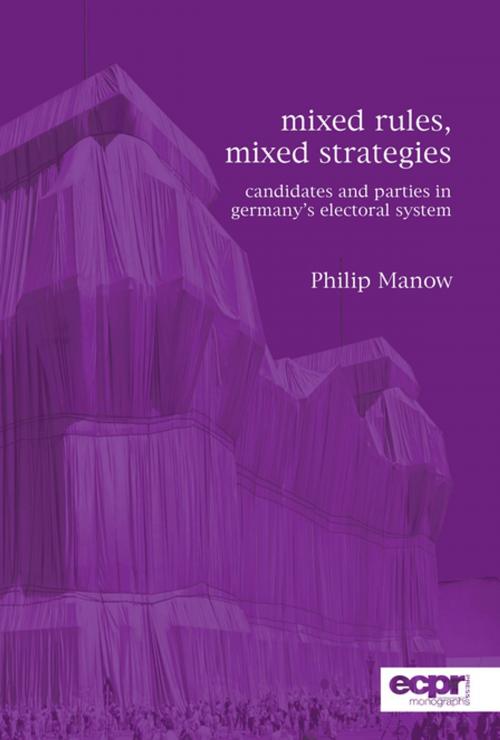Mixed Rules, Mixed Strategies
Parties and Candidates in Germany's Electoral System
Nonfiction, Social & Cultural Studies, Political Science, Government, Democracy, Religion & Spirituality, Philosophy, Political| Author: | Philip Manow | ISBN: | 9781785521560 |
| Publisher: | Rowman & Littlefield International | Publication: | December 1, 2015 |
| Imprint: | ECPR Press | Language: | English |
| Author: | Philip Manow |
| ISBN: | 9781785521560 |
| Publisher: | Rowman & Littlefield International |
| Publication: | December 1, 2015 |
| Imprint: | ECPR Press |
| Language: | English |
Sixty years of democratic representation in Germany allow us to study the working of a specific type of electoral system, namely a mixed system combining proportional and majoritarian rules, in great detail. Mixed systems have figured as a reference point in many reform debates of the recent past. This is because they appear to combine advantageous traits of proportional and majoritarian rules, such as fairness, proximity between constituencies and representatives, and stable government majorities. Mixed systems have also attracted much scholarly attention of late, because they allow us to study the effects of electoral rules while holding many intervening variables constant. But they also attract interest because the proportional and majoritarian electoral tiers affect each other in ways that differ from what would have resulted under pure PR or plurality. All this makes mixed systems a fascinating object of study, and the German system is its oldest and prototypical exemplar.
Sixty years of democratic representation in Germany allow us to study the working of a specific type of electoral system, namely a mixed system combining proportional and majoritarian rules, in great detail. Mixed systems have figured as a reference point in many reform debates of the recent past. This is because they appear to combine advantageous traits of proportional and majoritarian rules, such as fairness, proximity between constituencies and representatives, and stable government majorities. Mixed systems have also attracted much scholarly attention of late, because they allow us to study the effects of electoral rules while holding many intervening variables constant. But they also attract interest because the proportional and majoritarian electoral tiers affect each other in ways that differ from what would have resulted under pure PR or plurality. All this makes mixed systems a fascinating object of study, and the German system is its oldest and prototypical exemplar.















